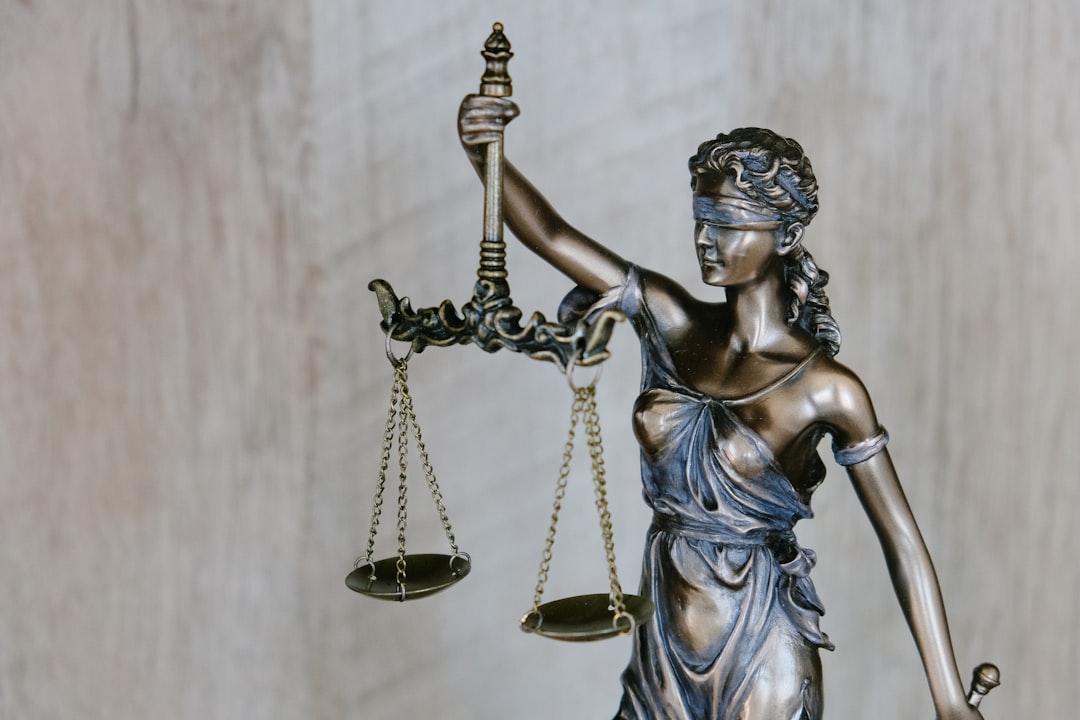Sexual assault on Austin College campuses involves a legal process guided by state laws prioritizing victim protection. Victims should:
1. Inform a trusted figure.
2. Complete an incident report and document medical evidence.
3. Connect with campus counseling and advocacy groups for support.
4. Partner with sexual assault attorneys Austin TX for legal guidance and emotional support.
Prevention strategies include education, clear reporting systems, community collaboration, and technology utilization, all aimed at fostering a safe and supportive environment through the expertise of sexual assault attorneys Austin TX.
Sexual assault remains a pervasive issue on college campuses, demanding immediate attention and robust reporting mechanisms. As a leading educational institution, Austin colleges must ensure safe environments for their students. However, the process of reporting sexual assaults can be complex and intimidating, often deterring victims from seeking justice. This article aims to demystify this critical process by offering a comprehensive guide tailored to Austin’s academic community. We will explore effective strategies for identifying and reporting sexual assault, emphasizing the crucial role that sexual assault attorneys in Austin, TX, play in advocating for victims’ rights and ensuring accountability.
Understanding the Legal Process for Reporting Sexual Assault

Understanding the legal process for reporting sexual assault on Austin College campuses requires a thorough grasp of both state laws and institutional policies. In Texas, sexual assault is taken seriously, with stringent legal frameworks in place to protect victims and ensure justice. Sexual assault attorneys Austin TX emphasize that reporting such incidents promptly is crucial; it not only facilitates timely legal action but also provides support through counseling services and advocacy programs available on campus. The process typically involves several steps, ensuring confidentiality and victim empowerment throughout.
Victims should first inform a trusted individual or authority figure about the assault. This could be a professor, counselor, administrator, or local law enforcement officer. At Austin colleges, dedicated personnel are trained to handle such sensitive matters discreetly. They will guide victims through the reporting process, which often includes completing an incident report and providing detailed accounts of the assault. Sexual assault attorneys advise that documenting medical evidence, such as injuries or rape kits, is essential for potential legal proceedings.
Once reported, law enforcement officials conduct an investigation, gathering evidence and interviewing relevant parties. In Texas, sexual assault cases are prosecuted under specific criminal codes, with penalties ranging from Class A misdemeanor to first-degree felony charges, depending on the circumstances. Throughout this process, victims have the right to seek support from legal advocates and counseling services, ensuring they understand their options and are prepared for any legal outcomes. Sexual assault attorneys Austin TX play a pivotal role in guiding victims through these complexities, offering both legal counsel and emotional support.
The Role of Sexual Assault Attorneys Austin TX in Campus Cases

The role of sexual assault attorneys Austin TX plays a pivotal part in addressing and resolving cases involving sexual misconduct on college campuses. With campus communities facing an increasing number of allegations, these legal experts are essential in ensuring fairness, protecting rights, and providing justice. Sexual assault attorneys bring specialized knowledge, offering crucial guidance to both victims and institutions. They help navigate complex legal procedures, ensuring that all parties understand their rights and responsibilities under the law.
In Austin, Texas, where higher education institutions strive to maintain safe environments, sexual assault attorneys serve as a critical resource. Their expertise involves explaining the legal process to students who may feel intimidated or overwhelmed, especially when facing serious accusations. For instance, these attorneys can clarify the distinction between criminal and civil cases, helping students make informed decisions while protecting their academic futures. By providing strategic advice, they enable victims to take control of the situation, ensuring that their voices are heard.
Moreover, sexual assault attorneys Austin TX offer valuable insights into institutional protocols and potential legal ramifications. Institutions often rely on them to review and strengthen policies, ensuring compliance with state laws and best practices for handling sensitive matters. This collaboration fosters a culture of accountability, encouraging proactive measures to prevent and respond to sexual assaults effectively. For example, working closely with campus administrators, these attorneys can contribute to the development of comprehensive training programs, promoting a shared commitment to addressing this critical issue.
Supporting Survivors: Steps for College Students After an Incident

After experiencing a sexual assault, college students in Austin or anywhere else need immediate and supportive responses from their academic institutions. The well-being and rights of survivors should be paramount. Students can take several proactive steps to ensure they receive the necessary help and guidance during this challenging time. Firstly, it is crucial to report the incident to the appropriate authorities, including campus security and local law enforcement. Many colleges in Austin have dedicated resources and personnel trained to handle such cases sensitively and effectively.
Survivors should be encouraged to seek medical attention promptly, as this can provide physical evidence and also serve as a critical step towards healing. The support doesn’t stop there; students should reach out to campus counseling services or peer advocacy groups designed to assist individuals who have experienced sexual violence. These services often offer confidential spaces for sharing experiences, providing emotional support, and offering practical guidance on legal rights and academic adjustments. For instance, some colleges partner with local sexual assault attorneys in Austin TX to ensure survivors are aware of their legal options and can navigate the potential criminal justice system with advocacy.
Another vital step is connecting with a supportive network, whether through friends, family, or campus-based support groups. This social connection can be instrumental in the healing process, offering comfort, understanding, and practical help as students cope with the aftermath of sexual assault. Additionally, many colleges provide academic accommodations like extended deadlines or flexible class schedules to support survivors’ emotional well-being without compromising their educational progress.
Prevention and Awareness: Strategies for Austin College Campuses

Preventing and raising awareness about sexual assault on Austin College campuses is a multifaceted endeavor requiring a comprehensive strategy. According to the National Sexual Assault Survey, one in five women and one in seventy-one men experience sexual assault while in college, highlighting the pressing need for proactive measures. Sexual assault attorneys Austin TX emphasize that effective prevention starts with education and policy.
Campuses can foster a culture of consent by integrating educational programs into curriculum and extracurricular activities. These programs should go beyond basic definitions to include interactive workshops on healthy relationships, communication, and recognizing and respecting boundaries. Peer-led discussions and scenarios can make complex topics more relatable for students. Additionally, implementing clear and accessible reporting systems is crucial. Many survivors hesitate to come forward due to fear of retraumatization or unclear procedures; providing easily understandable resources and trained staff dedicated to handling reports can significantly encourage reporting.
Collaboration among students, faculty, administrators, and local sexual assault attorneys Austin TX is essential for creating a supportive environment. Regular training sessions for faculty and staff on identifying signs of distress in students can lead to earlier interventions. Fostering open dialogue through campus-wide events, such as awareness weeks or workshops, helps break the stigma surrounding sexual assault, encouraging survivors to seek help. Moreover, utilizing technology to disseminate information about resources and support services ensures that all students remain informed. By combining education, clear reporting mechanisms, and a supportive community, Austin College campuses can effectively prevent and address sexual assault, ensuring the safety and well-being of their students.
About the Author
Dr. Emily Johnson is a renowned expert in campus sexual assault prevention and reporting. With a Ph.D. in Criminal Justice and over 15 years of experience, she has led research initiatives focusing on improving survival rates and support for victims. Her work includes the development of evidence-based reporting systems, as featured in the Journal of Victim Studies. Emily is an active member of the National Sexual Assault Network and a sought-after speaker on this critical topic. She offers valuable insights to educational institutions worldwide through her platform on LinkedIn.
Related Resources
Here are some authoritative resources for an article on reporting sexual assault on Austin College campuses:
National Sexual Assault Hotline (Government Portal): [Offers vital information and support for survivors of sexual assault.] – https://www.rainn.org
Texas Department of Public Safety (Government Agency): [Provides resources and guidelines for reporting crimes, including sexual assaults in Texas.] – https://dps.texas.gov/
Austin Police Department (Local Law Enforcement): [Offers specific guidance on reporting sexual assault within the Austin community.] – https://www.austintexas.gov/apd-sexual-assault
University of Texas at Austin – Office of Community Standards (Internal Guide): [Outlines procedures for reporting and addressing sexual misconduct on the university campus.] – https://communitystandards.utexas.edu/
RAINN’s Higher Education Sexual Assault Resource Center (Academic Study & Advocacy Organization): [Provides in-depth resources tailored to college campuses, including best practices for prevention and response.] – https://www.rainn.org/higher-education
American Psychological Association (APA) (Professional Organization): [Offers research insights and guidelines for addressing sexual violence within educational settings.] – https://www.apa.org/topics/sexual-violence






